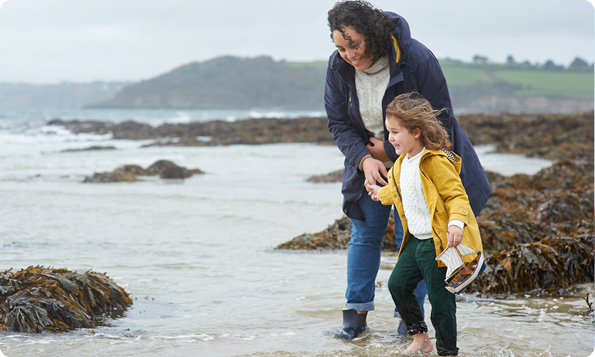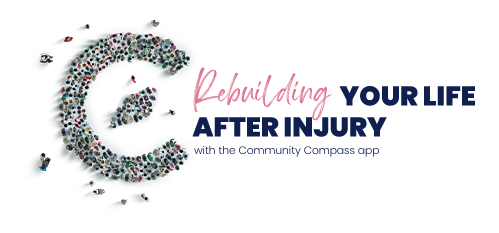How do I know if I have a criminal injury claim?
To apply for criminal injuries compensation, there are certain conditions you must comply with. These are:
- The incident must have happened in either England , Wales or Scotland. (Northern Ireland has its own separate Criminal Injuries rules).
- The incident which caused your injuries must have been reported to the police as soon as reasonably possible. If there was a delay in reporting the incident to the police, your criminal injuries compensation claim might be rejected.
- Your injuries must be sufficiently serious and within the CICA’s list of eligible injuries.
- You must meet the CICA’s residence and nationality requirements. This includes UK citizens, EU citizens, close relatives of UK citizens and someone who is ordinarily resident in the UK.
- You must cooperate with the police throughout their investigation and support the criminal process to ensure everything is done to bring your assailant to justice.
- If you have a criminal record, you may not be eligible to claim. We can advise you on this point.
- The claim must be made within two years of the incident which caused your injuries (for children, claims must be made before their 20th birthday). This time may be extended in certain circumstances (e.g. sexual abuse claims).
Contact us for advice: 0800 612 8196 advice@cfglaw.co.uk
Can I make a claim if nobody has been convicted of the crime?
You may still be able to claim compensation if the person responsible for your injuries has not been caught or convicted. As long as you have reported the incident to the police and you can prove that a crime has taken place, you will be able to apply for compensation, regardless of whether someone has been convicted. You should report any crimes to the police as soon as possible and help in any way with their enquiries.
Contact us for advice: 0800 612 8196 advice@cfglaw.co.uk
What injuries can I claim for under the CICA scheme?
We have experience supporting clients with criminal injury claims who have experienced life-changing injuries, including:
Contact us for advice: 0800 612 8196 advice@cfglaw.co.uk
Is my CICA award final? Can I apply for more compensation if my injuries get worse after my claim is finished?
Once your CICA claim has been concluded, it is possible in some circumstances to apply for more compensation if your condition becomes worse. This is known as a “re-opening” claim.
In summary, the CICA can re-open claims if there has been a significant deterioration in your condition and that it would lead to an injustice if the original decision was allowed to stand.
There are strict rules which apply to re-opening claims, and the CICA deals with them under a different procedure to other cases. We would be happy to discuss your case with you without any charge or obligation.
Contact us for advice: 0800 612 8196 advice@cfglaw.co.uk
What is the Criminal Injuries Compensation Authority (CICA)?
The CICA is a government agency established to compensate victims of crimes of violence for their physical or psychological injuries. If you have sustained injuries because of a crime of violence, you may be able to claim compensation.
Any compensation you receive is funded through the government CICA scheme and will not be paid by the person who caused your injuries. The CICA will not inform the person who committed the crime against you that you have made a claim.
For more serious injuries where you have been unable to return to work due to your injuries, claiming compensation through the CICA can be quite a complex process. Therefore, we would always recommend you speak to a specialist solicitor who will advise you and, if necessary, assist with your application.
Contact us for advice: 0800 612 8196 advice@cfglaw.co.uk
Who can make an application for the Criminal Injuries Compensation Scheme?
If you have been a blameless victim of a violent crime, you may be able to claim compensation. This can include compensation for physical and mental injuries following a crime of violence. The CICA can also make compensation payments in respect of sexual assaults and abuse.
Contact us for advice: 0800 612 8196 advice@cfglaw.co.uk
Can I claim compensation if my family member has been killed in a violent crime?
If you have lost a family member because of a violent crime, you may be eligible to claim compensation through the CICA. This compensation can include bereavement payments and funeral expenses, as well as compensation for the loss of parental services and loss of income if the person who has been killed has dependents.
In certain circumstances, it is also possible for dependent family members to apply to the CICA if a relative has been injured by a crime of violence but later dies of unrelated causes.
Contact us for advice: 0800 612 8196 advice@cfglaw.co.uk
Can I claim compensation if I witnessed a violent crime?
You might be able to claim compensation if you witnessed a violent crime.
The CICA can make compensation awards to someone who witnessed a loved one being attacked. This is known as a “secondary victim” claim.
A secondary victim is someone who has sustained a mental injury due to being present at or witnessing a crime of violence.
To claim secondary victim compensation, you must have witnessed the incident first hand or have seen the immediate aftermath. Also, there needs to be a close connection of love and affection between you and the person who was attacked.
Contact us for advice: 0800 612 8196 advice@cfglaw.co.uk
Making a criminal injury compensation claim. What can I claim for?
If you have sustained injuries as a result of an act of violence, you can make a criminal injury compensation claim through the CICA scheme. At CFG, we have successfully brought compensation claims that have resulted from unprovoked assaults by strangers, to injuries resulting from assaults that have taken place within the family home. These can include assaults by assailants under the influence of drugs or alcohol, terror attacks and assaults provoked by minor disagreements.
Contact us for advice: 0800 612 8196 advice@cfglaw.co.uk
How much compensation will I get from the Criminal Injuries Compensation Scheme?
The CICA use a “tariff” system to decide how much compensation to pay. The “tariff” is a long list of injuries along with a fixed amount of compensation for each injury.
If you have sustained multiple injuries, you will only receive compensation for the three most serious injuries sustained, and the CICA will adjust the payments as follows: -
- 100% at the total tariff value for the most serious injury
- 30% of the total tariff value for the second most serious injury
- 15% of the total tariff value for the third most serious injury
You may also receive special expenses from the CICA, which can include:
- Loss of earnings
- Care costs
- Travel expenses for NHS treatment
- Property adaptations
- Specialist equipment
Claiming these expenses can be complex and require in-depth evidence, so it can be useful to speak with a solicitor who specialises in CICA claims to ensure your claim is valued correctly.
The maximum amount of compensation that you can claim through the scheme is capped at £500,000.
Contact us for advice: 0800 612 8196 advice@cfglaw.co.uk
What is the criminal injury compensation claim process?
Applications to the CICA are submitted either over the phone or through an online form. You will require some details including the crime reference number, the details of the investigating police officer, hospital and injury details. The CICA will also ask about any previous convictions that you might have.
Once an application has been received by the CICA, they will then proceed to gather evidence from the police, your GP and any hospitals that you have attended.
In serious injury claims where you have not been able to return to work due to your injuries, it is also important to gather evidence to support your claim. A specialist solicitor can assist you in gathering this evidence, including any witness statements, medical records, reports from medical experts and details of any equipment you might need or adaptations to your home.
The CICA will make their decision in writing. If your case has been rejected and you do not agree with their decision, this can be reviewed. In some circumstances, if a case is again rejected at the review, you can submit an appeal to an independent Tribunal, who will make a decision on your claim. Your solicitor will assist you at each stage of the review and appeal process to ensure you have the best chance of success.
Contact us for advice: 0800 612 8196 advice@cfglaw.co.uk



















